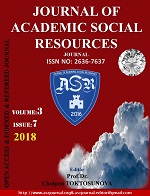Author :
Abstract
Мақалада тіл - этнос¬тық өзіндік сананы туғы¬зବды да этностың даралануына, тұтастануына алып келетіндігі сөз болады. Этностық өзіндік сана этностық қауымдастықты сақтап, дамытады. Қауымдастықтың басқаларға ұқсамайтын өзіндік ерекшелігі бар екенін көрсетеді. Ұлттың қалыптасуында тіл басты этностық құндылық. Қоғамда болатын саяси тартыстар, өзгерістер, әртүрлі шиеленістер, өтпелі кезеңдер тұсында халықтың есін жинайтын, сыртқы күштерден қорғанатын ең соңғы ұясы – ұлт. Тіл – ұлттың ең бірінші, ең қасиетті сипаты, халықтың ғасырлар бойы жинаған рухани қазынасының жиынтығы. Тіл мен ұлт – біртұтас. Жеке түркі тілдерінің қалыптасу дәуірлері әр түрлі. Олардың кейбіреулері ерте қалыптасып, өз іргесін басқалардан бұрынырақ алыстатқан болса, енді біреулері ортақ тіл қауымынан соңғы дәуірлерде (XIV-XVI ғас.) ғана бөлініп шыққан. Бұған түрлі жағдайлар, әсіресе сол халықтың экономикалық жағдайлары себеп болған. Кей халықтардың этникалық құрамы әр түрлі болып келсе, кейбіреулері бір тұтас, бірыңғай болады. Бұл жағдайдың да тілдің қалыптасуына, тілдік ерекшеліктердің пайда болуына, сақталуына ықпалы бар. Түрколог ғалымдар түркі тілдерінің даму кезеңдерін белгілі кезеңдерге бөліп, әр кезеңнің өзіндік ерекшелігін анықтауға әрекет етіп келеді. Мақалада Н.А. Баскаков түркі тілдерін дамуы мен қалыптасуына байланысты бөлген кезеңдері қарастырылады.
Keywords
Abstract
The article speaks about the language - the loss of ethnic self-consciousness, which leads to the individualization of the ethnos. Ethnic identity conserves and develops ethnic communities. It shows that the community has its own unique nature. Language is a key ethnic element in the formation of the nation. The nation's political clashes, changes, various conflicts, the nation's last nest to protect people from the external forces during the transitional periods. Language is the first and most sacred character of the nation, a collection of spiritual treasures that people have accumulated over the centuries. Language and nationality are all united. The periods of formation of separate Turkic languages are different. Some of them have been formed early and have settled their foundations farther away from others, while others have been separated from the common language in the latter times (XIV-XVI centuries). This was due to various circumstances, especially those caused by economic conditions of the population. The ethnic composition of some nations is different, while others are uniform, uniform. This situation also influences the formation of language, the appearance and preservation of language features. Turkologist scientists are trying to determine the stages of development of the Turkic languages and to identify the specific features of each period. In the article NA. Baskakov's views on the development and formation of Turkic languages are discussed.
